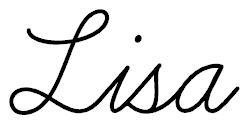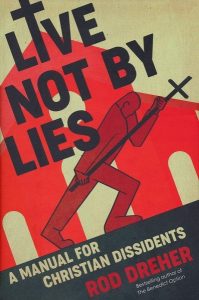An Indictment of the Graduated Income Tax, Welfare, and Inflation

Andrew stood up slowly, letting the muscles in his back and down the backs of his legs relax. For hours he had been bent over, sweeping his blueberry rake from side to side, pulling the tiny fruits from their bushes and often working to free the rake from the ferns and other plants that conspired to hinder his progress. He had filled bucket after bucket with berries and leaves, then dumped them into the winnowing machine that used a large fan to blow away the chaff, letting the berries drop unhindered into one large plastic box after another. His crew chief, Ted, dutifully recorded the incoming boxes for each of the rakers, then tallied them up at the end of their full day of work—and a full day it was, stretching from early morning when rakers’ feet are wet with dew until late afternoon when their necks are burned from the intense heat of the sun.
While Andrew walked stiffly, empty buckets and rake in hand, toward a shaded area, Ted scanned down his list. Andrew had the best day overall with 120 boxes. His younger sister Janet did nearly as well with 100. He looked down toward the bottom and saw William’s and Archie’s names. The crew chief liked William’s determination. He worked as hard as he could, but he walked with a severe limp and was missing his left arm from the elbow down. He still ended the day with 40 boxes, all of them well earned in spite of his physical challenges. And Archie…well, he hadn’t shown up the last three days in a row, but he had just called with another excuse and an apology and said he intended to be back at work tomorrow.
Seeing the inequality evident in his numbers, Ted took his pencil and crossed out Andrew’s 120 boxes, instead writing down 90 and adding the other 30 to Archie’s previous zero. He looked at Janet’s 100, crossed that out too and wrote down 80, adding her boxes to William’s to bring him to 60.
Upon hearing his new total, William was thankful, but he didn’t realize that his boxes had been taken from his friend Janet. And when Ted called to tell Archie, Archie simply wondered why the chief hadn’t given him more as he had intended to get up and go to work each of the last three days, but something always seemed to come up. He didn’t particularly care that his boxes had been taken from Andrew—since Andrew had more than he needed anyway. He was mostly concerned that Andrew still had 60 more boxes than he had himself. Andrew is no better than I am, Archie thought. Why should he have more boxes credited to his account? There must be some inherent bias in the system.
Andrew and Janet knew how hard they’d worked, and they’d both kept careful track of how many boxes they’d raked. So they recognized immediately that they had been cheated. The siblings were disgusted and wondered why they had spent those extra hours in the hot sun just to receive no benefit from them. They had noticed William’s diligence through the day and would have been happy to share out of their abundance if they had thought he had a particular need. And they had noticed, too, Archie’s repeated absences, but they had no inclination to help him until he had learned to help himself. Andrew and Janet were outraged that Ted presumed to know better than they how to allocate the fruits of their labors, both in deciding how much to give and to whom. After pleading their case with Ted to no avail, and after consulting their parents, they went to visit Ted’s supervisor and then headed home for the night.1
Because Andrew and Janet had reported Ted’s theft to his supervisor, Ted was given a stern warning the next morning, but it was not stern enough to make him give up his shenanigans. He decided instead that he would take a different tack in trying to help out William and Archie.
Archie still didn’t make it out to the fields that day, but William, Janet, and Andrew again worked hard and matched their actual totals from the day before (40, 100, and 120 boxes, respectively). Rather than take any boxes from Andrew’s and Janet’s totals, however, the crew chief opted instead to just add 35 boxes for William (since he had shown up and worked diligently) and 30 for Archie (since he reportedly would have worked if he hadn’t lost a shoe), bringing them up to 75 and 30 boxes. Ted figured that since there was no loss to Andrew and Janet, there would be no reason this time for them to complain. Unfortunately, however, when the day’s boxes of berries were processed, there was only the same weight of berries as there had been the day before, so management decided that the boxes must not have been full. Being fairly astute, the factory’s owner had no desire to pay a full wage for partial work. Since the reported 325 boxes only weighed as much as the previous day’s 260 boxes, the factory paid 20% less for each box, leaving Andrew and Janet to receive only 80% of what they were expecting for the second day’s work.
On the third day, Archie neither showed up nor called to explain. William still raked his 40 boxes. As for Andrew and Janet. . . they each raked 40 boxes, then walked off the fields at noon and headed for home.2
Copyright © 2020
Notes:
1. In the first part of our story, we see the wonders of the progressive income tax and the welfare system. Andrew raked the most, so he had the highest percentage taken. Janet was second and lost a bit less than her brother. William and Archie lost nothing. And, of what was taken, it went to subsidize those who either earned less or didn’t work at all. And in reality, if he had been a government bureaucrat, Ted would have also skimmed off a fair share to cover the costs of administering his program of taxation and redistribution.
2. In the second part of our story, we see the effects of inflation. Because more boxes were recorded than fruit that was harvested, each box was worth proportionately less. It reduced the value of each the workers’ boxes and became just another avenue of wealth redistribution. Likewise, when currency is printed and injected into the economy far faster than excess new goods are produced, each dollar in circulation suddenly becomes worth less—whether it is in your purse or wallet, hidden in your mattress, or even saved for the future in your bank account. Just like Ted’s addition of fictional boxes, inflation (whether called “quantitative easing” or “increasing the size of the money supply”) is simply a more covert form of theft—hidden, but still insidiously devaluing others’ property.
How does God feel about government-driven inflation? He tells us in Leviticus 19:35-36, “Ye shall do no unrighteousness in judgment, in meteyard, in weight, or in measure. Just balances, just weights, a just ephah, and a just hin, shall ye have: I am the LORD your God, which brought you out of the land of Egypt.”













